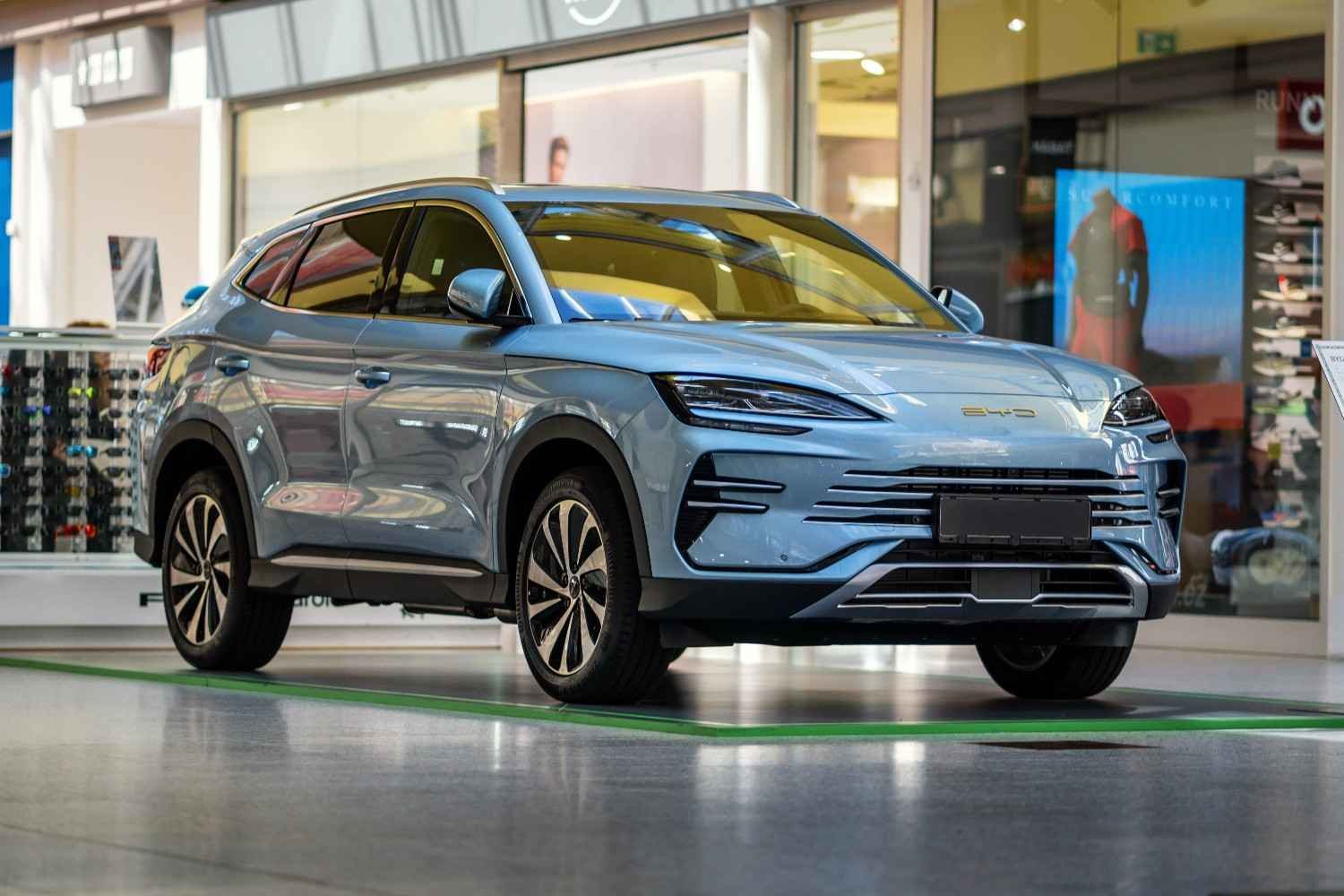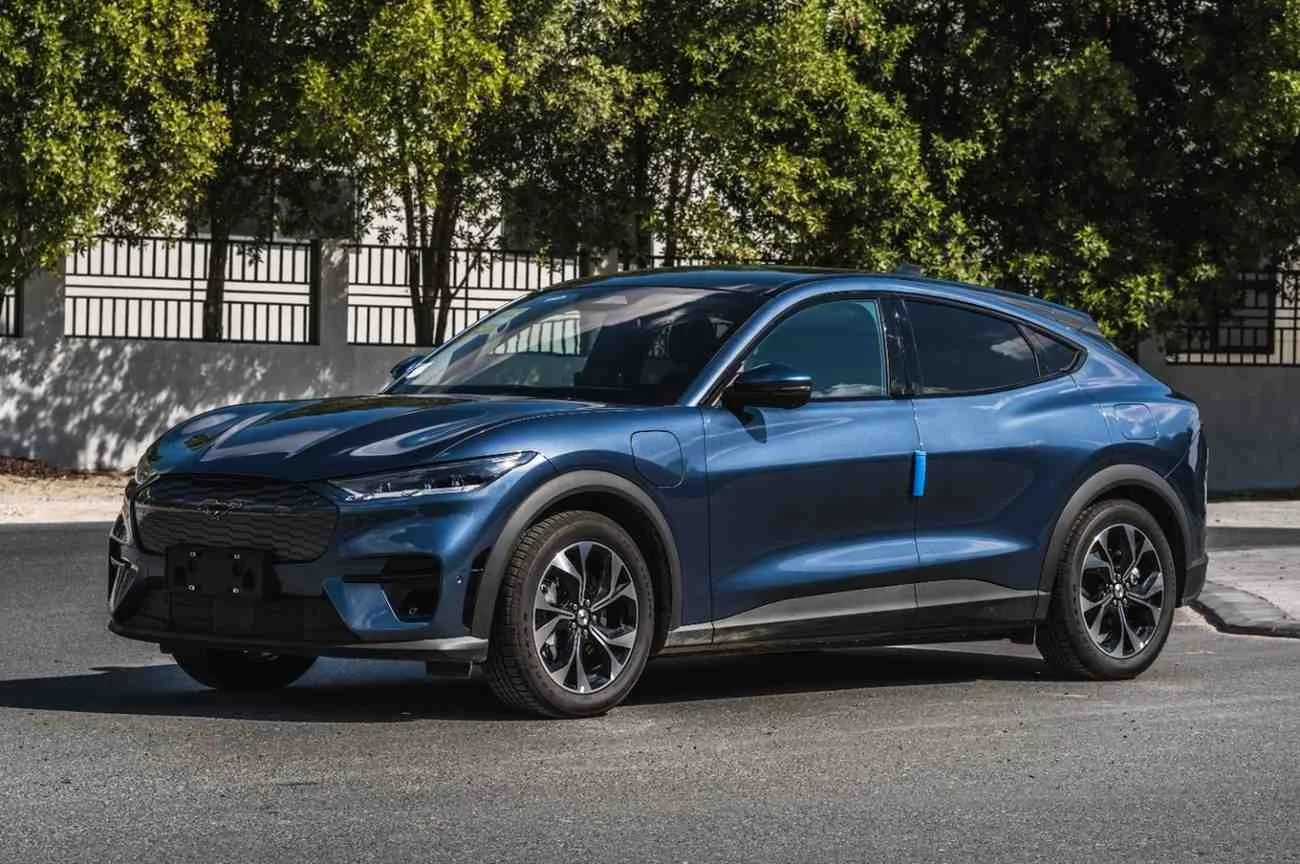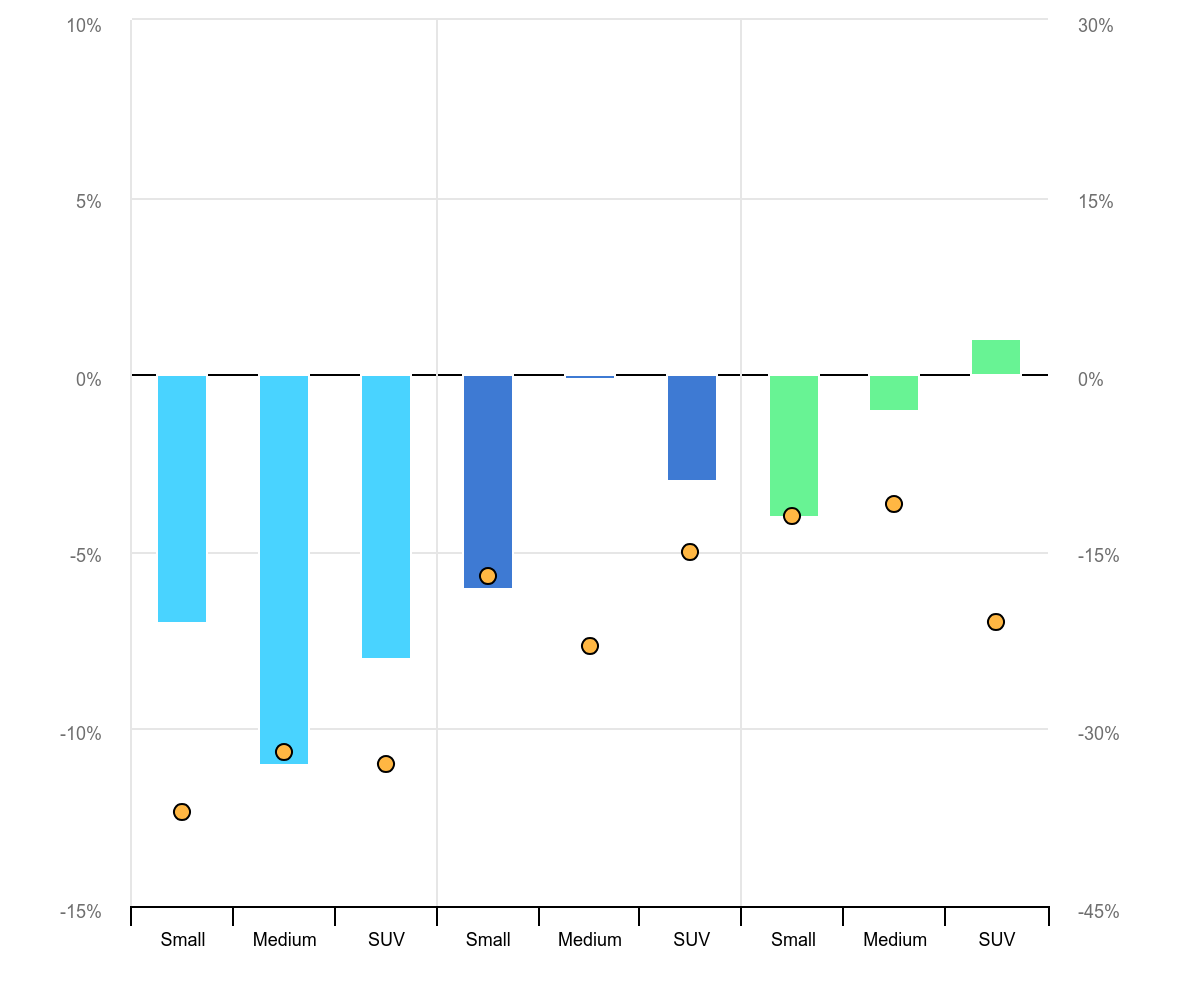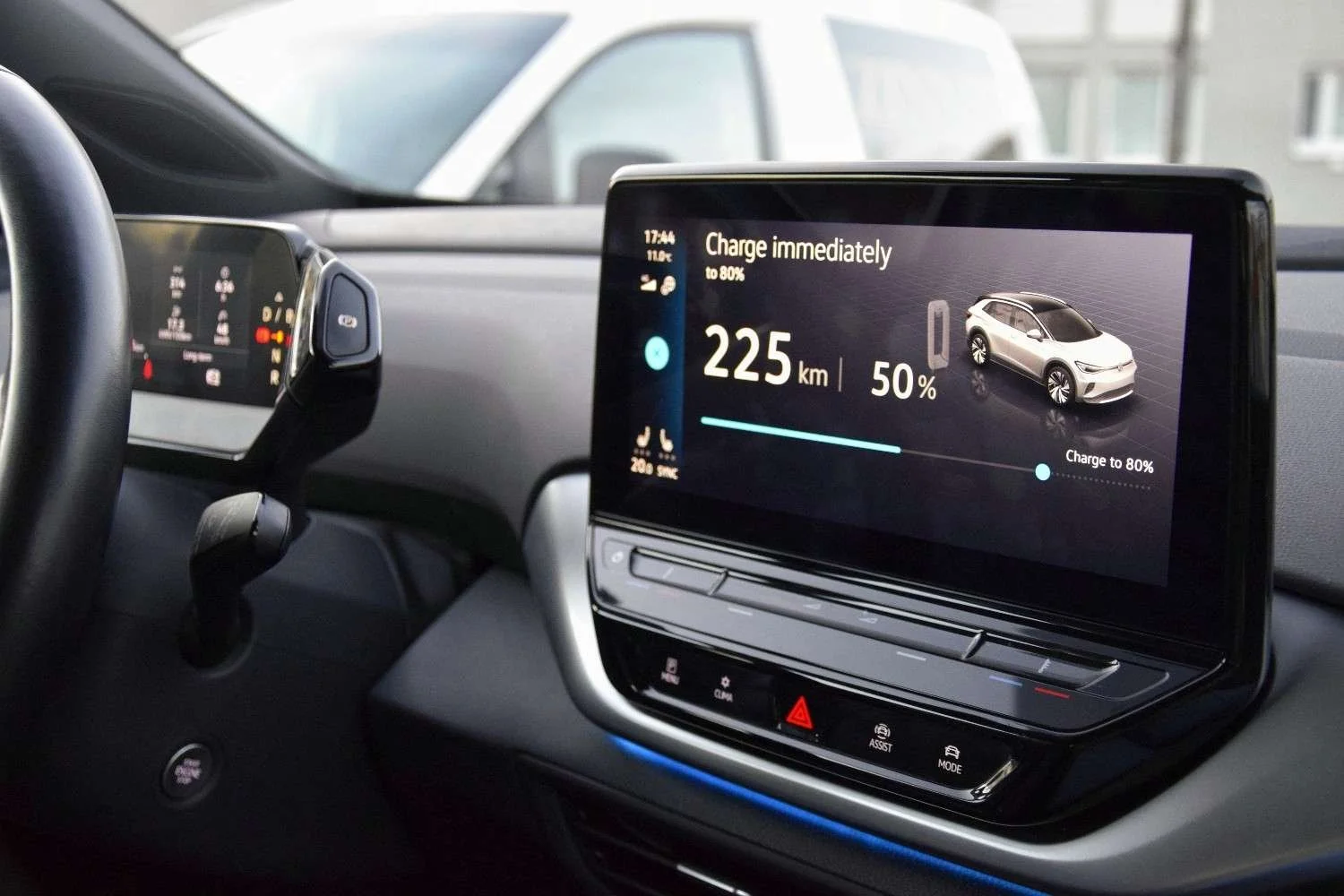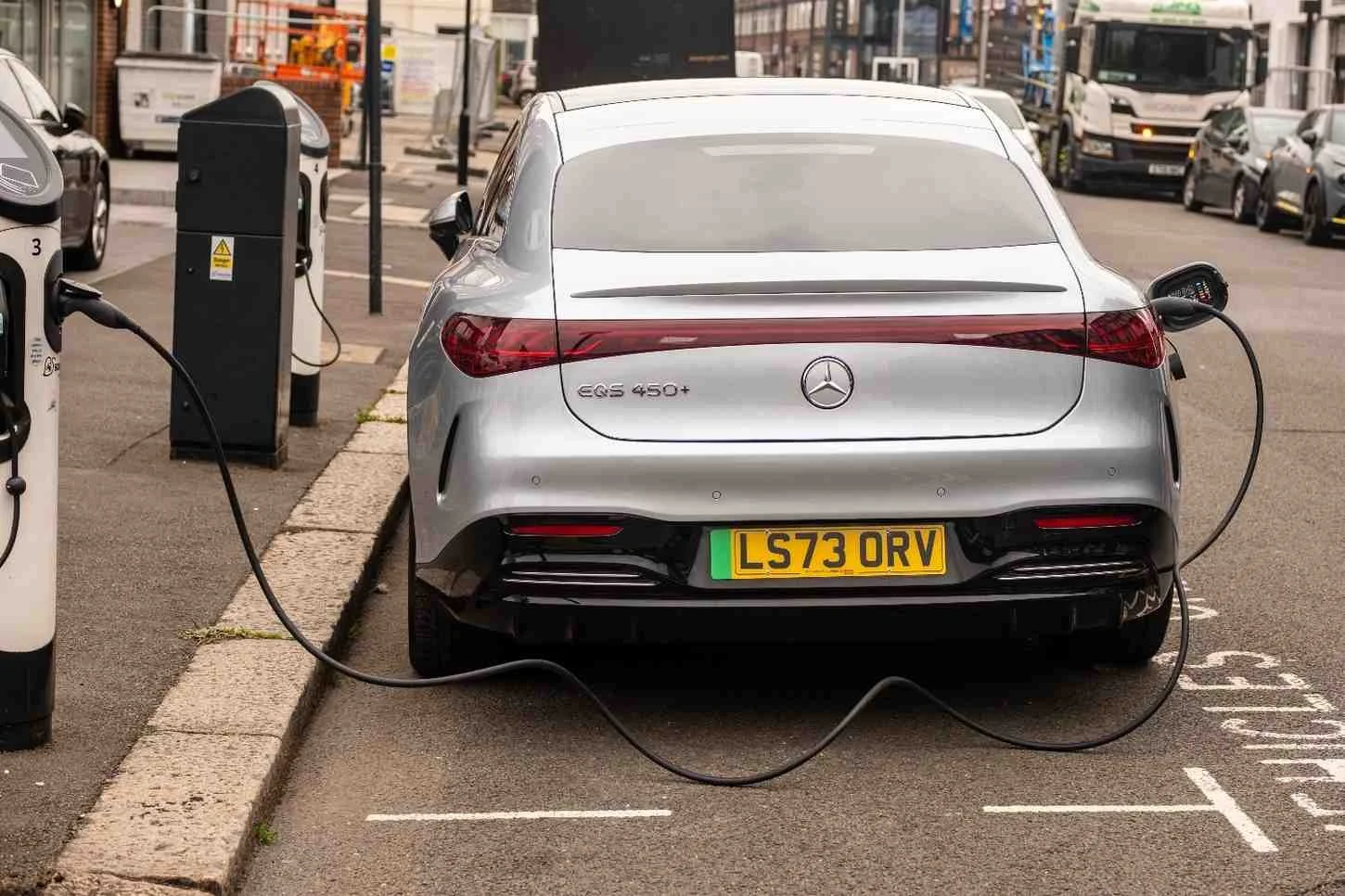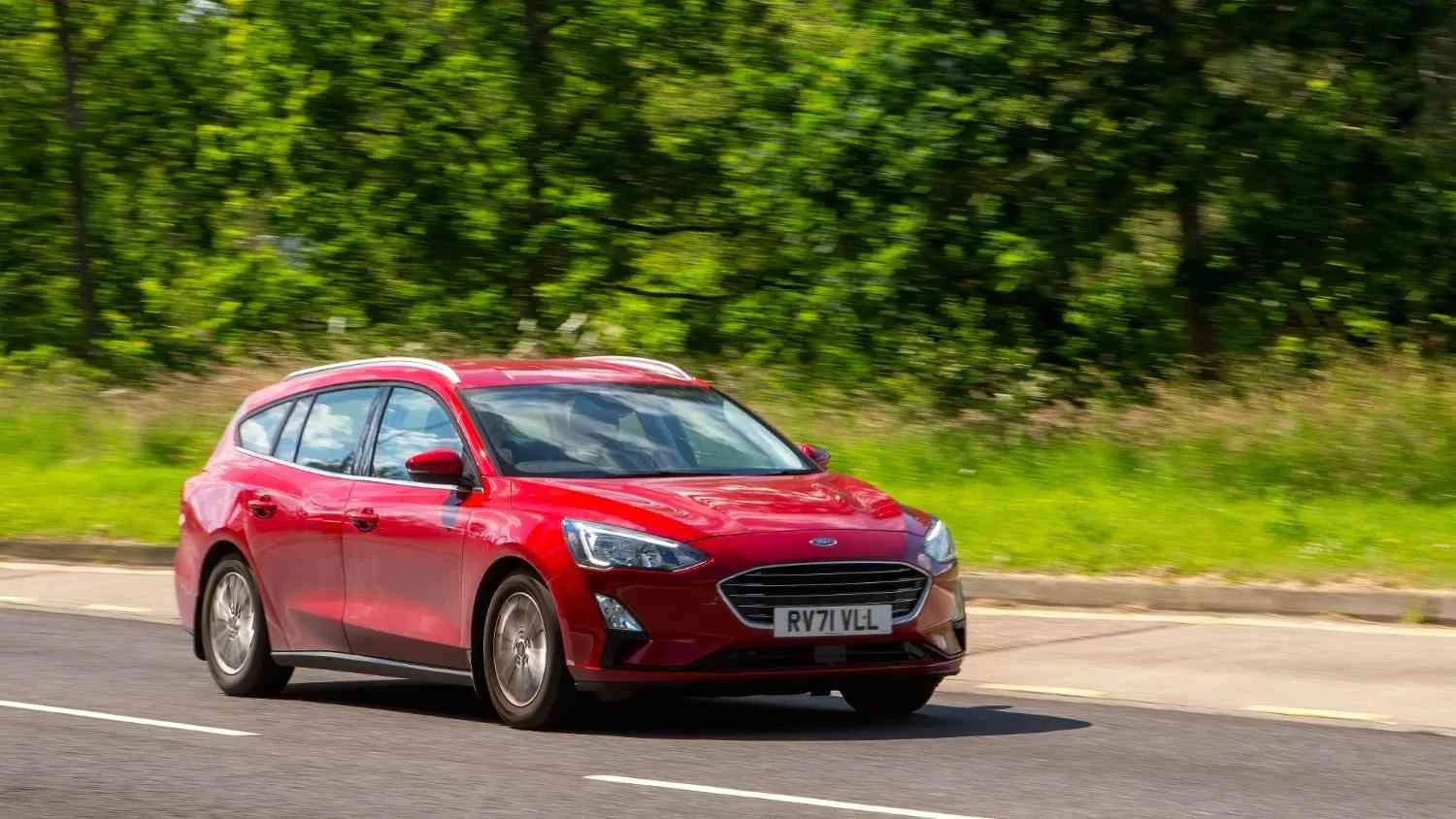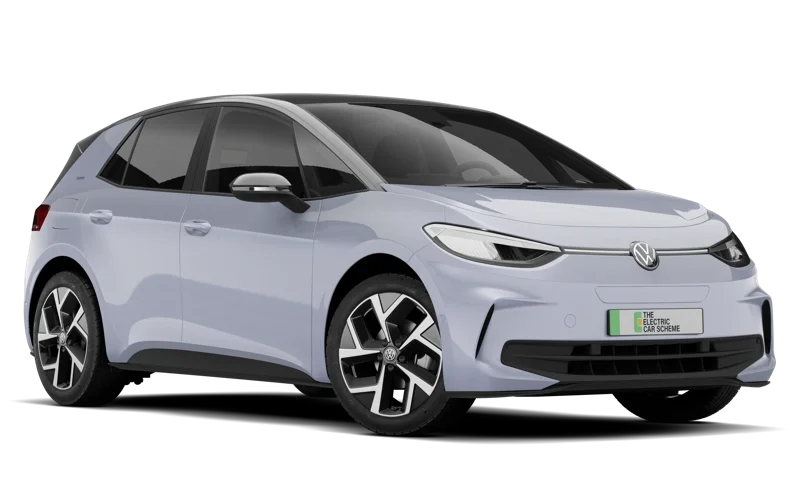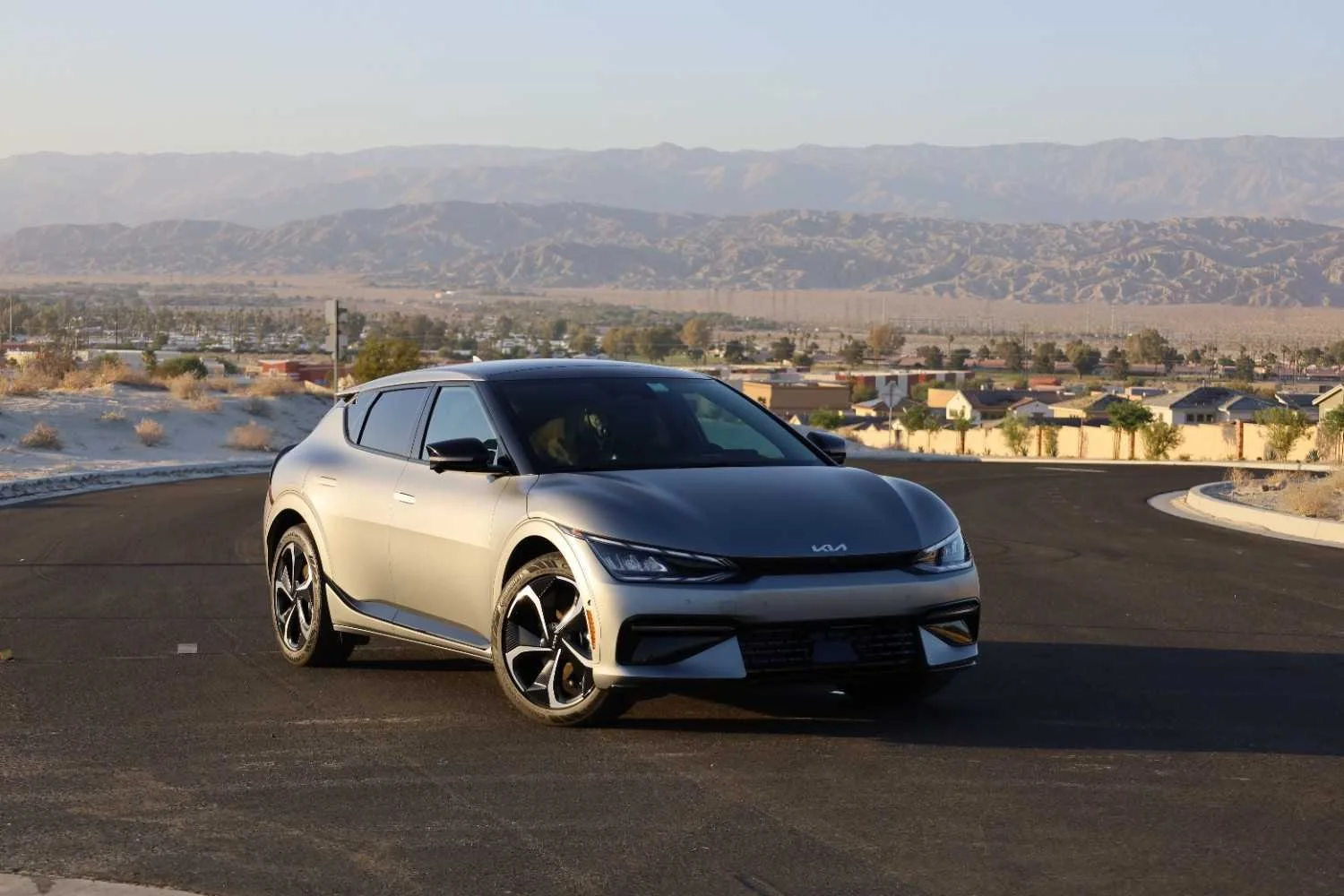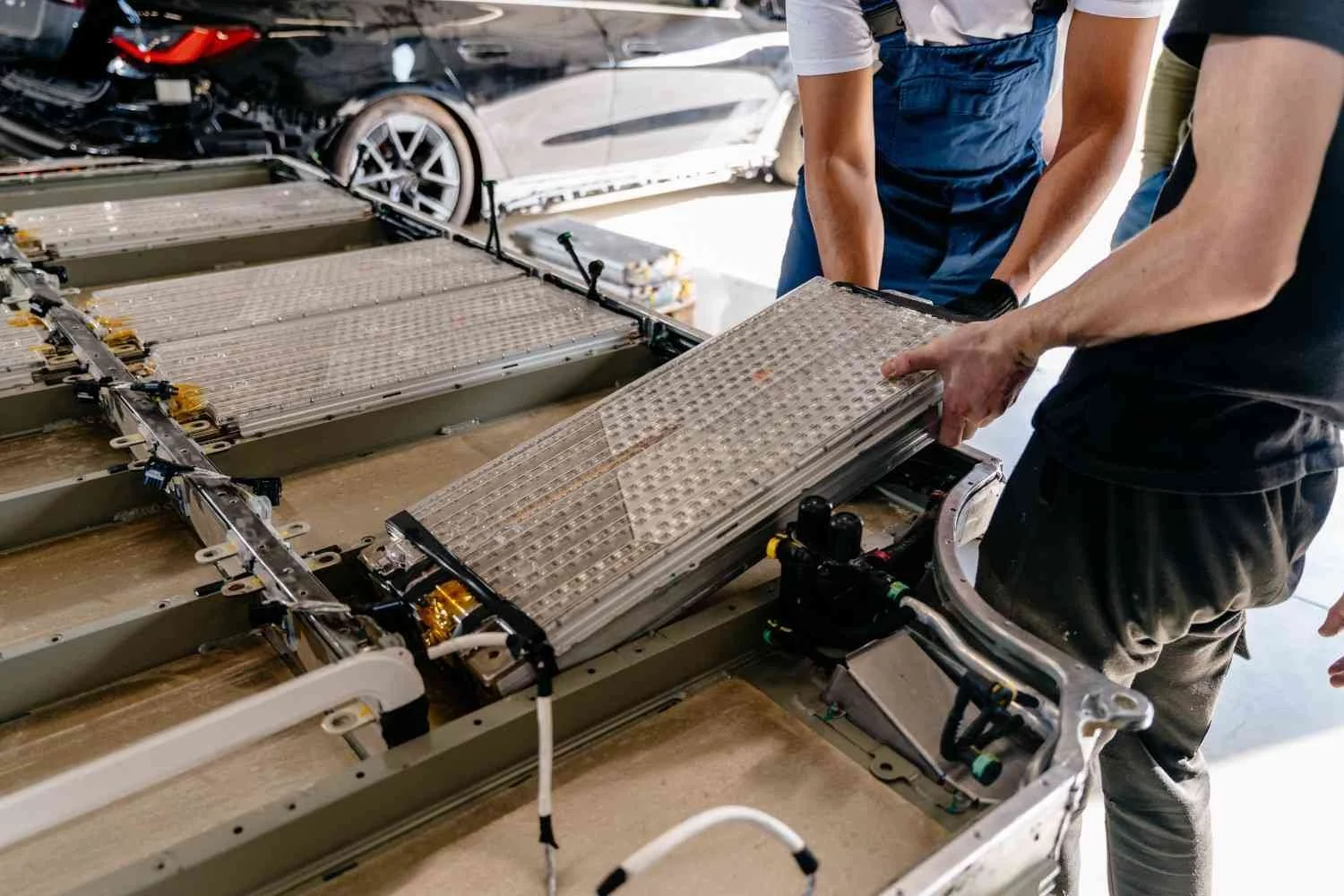Why Are Electric Cars More Expensive? True Cost Analysis 2026
Image source: Shutterstock
Buying a car is often the second-largest purchase people make after their home, so it’s completely natural to pause when you see the upfront price of an electric car compared with a petrol or diesel alternative.
At first glance, electric vehicles (EVs) appear to be more expensive. However, the headline price alone rarely reflects the actual cost of owning a car. Once you consider fuel (or charging), maintenance, insurance, tax, depreciation, and total cost of ownership (referred to as TCO), the picture changes significantly - especially when you get an EV through salary sacrifice.
Why Do Electric Cars Cost More Than Petrol Cars?
Electric cars are built very differently from petrol and diesel vehicles. Batteries, power electronics, and software-driven systems introduce costs that internal combustion engine (ICE) cars simply don’t have.
What Is The Average Price Difference Between EVs And Petrol Cars?
Buying a new electric car is generally between 18-20% more expensive than a new petrol car.
The average price of an electric car currently sits between £48,000 and £50,873. It’s worth bearing in mind that this average is skewed by the large number of luxury, high-end models in the EV space. Whereas a new petrol car will set you back around £21,000 on average, with smaller cars being even cheaper!
Image source: Shutterstock
How Has The EV–Petrol Price Gap Changed Over Time?
Early EVs were low-volume, premium products with limited competition. As technology has matured and more manufacturers have entered the market, prices have steadily fallen - particularly in the small and medium car segments.
Will EVs Ever Cost The Same As Petrol Cars?
Most industry analysts expect purchase price parity between 2026 and 2028 for mainstream models. Through salary sacrifice, many drivers already experience cost parity today.
Why Are EV Batteries So Expensive?
The battery is the single most expensive component of an electric car, and it plays a big role in why EVs often have a higher upfront price than petrol or diesel vehicles.
Unlike a traditional internal combustion engine, which relies on hundreds of mechanical parts working together, an electric car’s battery must safely store and deliver large amounts of energy, withstand thousands of charge cycles, and perform reliably in a wide range of temperatures. This makes it both technologically complex and costly to produce.
What Goes Into Making An EV Battery?
Modern EV batteries are made up of thousands of individual lithium-ion cells, grouped into modules and managed by sophisticated battery management systems. These cells contain a mix of raw materials, including:
Lithium
Nickel
Cobalt
Manganese
Graphite
Aluminium and copper
These materials must be mined, refined, and processed to high standards. Extraction and processing are energy-intensive, tightly regulated, and often dependent on global supply chains, all of which contribute to higher costs compared with traditional engine components.
Where Do Battery Materials Come From?
Battery materials are sourced globally:
Lithium is primarily produced in Australia, Chile, Argentina, and China
Nickel is commonly sourced from Indonesia and the Philippines
Cobalt is largely mined in the Democratic Republic of Congo
The geographic concentration of these materials means prices can be affected by geopolitics, environmental regulations, and ethical sourcing requirements - all of which manufacturers need to account for.
Why Battery Costs Still Matter In 2026
Battery costs are falling. According to the IEA, in 2024, the global average battery pack price fell by more than 25%. This is despite the global average battery size growing slightly!
The chart shows battery electric car price and battery system price changes in selected countries, 2023-2024.
Image source: IEA’s Trends in Electric Car Affordability
The good news is that battery technology continues to improve. Advances in chemistry, manufacturing efficiency, and recycling are steadily reducing costs, and many analysts expect batteries to become significantly cheaper over the next few years. This should help bring electric cars closer to upfront price parity with petrol vehicles.
How Does Battery Degradation Affect Used EV Prices?
Battery degradation is often misunderstood and can affect perceptions of used electric cars.
How Much Do Batteries Degrade In Reality?
Most modern EVs experience:
2–3% degradation per year
Around 10–15% loss after 8 years
Manufacturers usually provide 8–10 year warranties guaranteeing at least 70% capacity.
What Should I Look For When Buying A Used EV?
Battery health or state-of-health report
Remaining manufacturer's warranty
Does Battery Degradation Make Used EVs A Bad Investment?
No. Used EVs can offer excellent value, particularly if you get one through a salary sacrifice scheme, like The Electric Car Scheme. This is partially because the long-term battery risk isn’t passed to the driver.
Why Is EV Technology More Expensive?
Image source: Shutterstock
Electric vehicles rely on advanced systems that are still newer than traditional engines.
What Complex Systems Do EVs Have?
Battery management systems
Power electronics and inverters
Regenerative braking
Advanced software and connectivity
How Do Electric Motors Compare In Cost To Engines?
Electric motors are mechanically simpler but require high-precision manufacturing and specialist materials, which increases cost.
What About Charging Infrastructure Costs?
Manufacturers invest heavily in:
On-board charging hardware
Thermal management systems
How Do Economies Of Scale Affect EV Prices?
One of the less obvious reasons electric cars have historically cost more than petrol vehicles is scale.
Petrol and diesel cars have been produced in vast numbers for decades, allowing manufacturers to spread development, tooling, and production costs across millions of vehicles. Electric cars, by comparison, are still relatively new. Although adoption is growing (there are now 150 models to choose from). EV production has only recently begun to approach the volumes needed to unlock the same cost efficiencies.
As more electric cars are built and sold, these economies of scale play a crucial role in bringing prices down!
How Many EVs Are On UK Roads In 2026?
There are over 1,750,000 fully electric cars in the UK, which means aprproximately 5.2% of the c.34 million cars on UK roads are fully electric.
The data in the table below has been taken from the SMMT, and shows the vehicle registratons by powertrain (BEV. PHEV, HEV). It shows 426,209 battery electric cars (BEV) were registered in 2025, building on 338,314 in 2024 (a 26% increase year-on-year). BEVs now have a market share of 22.7% compared to 18.7% in 2024.
| Year to date electric car registrations by powertrain | 2025 | 2024 | % Change | Market Share '25 | Market Share '24 |
|---|---|---|---|---|---|
| Battery Electric Vehicle | 426,209 | 338,314 | 26.0% | 22.7% | 18.7% |
| Plug-in Hybrid Electric Vehicle | 208,245 | 154,462 | 34.8% | 11.1% | 8.5% |
| Hybrid Electric Vehicle | 261,755 | 243,499 | 7.5% | 14.0% | 13.4% |
When Will EV Production Volumes Match Petrol Cars?
As adoption increases and production scales up, manufacturers become more efficient, which helps bring costs down.
How Does Government Support Affect Pricing?
Government incentives encourage adoption and infrastructure investment, but manufacturers still carry significant research, development, and tooling costs.
Is EV Insurance Really More Expensive?
Insurance is one of the most common concerns for drivers considering an electric car. While EV insurance has historically been more expensive than petrol or diesel equivalents, the gap has narrowed significantly in recent years.
Why Does EV Insurance Cost More?
In 2026, EV insurance is typically 10–20% higher than petrol equivalents due to:
Higher vehicle values
Battery repair costs
Specialist technician requirements
This gap has narrowed substantially since 2020.
Are Insurance Costs Coming Down?
Yes. As insurers gain better claims data and repair networks expand, premiums are stabilising.
How Does Salary Sacrifice Affect Insurance Costs?
Most salary sacrifice leases include insurance, paid from your pre-tax salary, which reduces the cost.
What Makes Electric Cars Cheaper To Run Despite Higher Prices?
While electric cars often cost more to buy upfront, day-to-day running costs are where they begin to tip the balance back in the driver’s favour. Unlike petrol and diesel cars, EVs convert energy far more efficiently, have fewer mechanical components that can wear out, and all of which reduce ongoing costs.
For most drivers, these savings are felt almost immediately. Fuel, servicing, and tax typically make up a large proportion of car ownership costs, and electric cars significantly reduce or remove each of these expenses over time.
How Much Cheaper Is EV Charging Than Petrol?
Electric cars are more energy-efficient than petrol vehicles. Where a petrol car loses much of its energy as heat, an electric motor converts a far higher percentage of electricity into movement.
Typical UK costs per mile in 2026:
Petrol: ~14–18p per mile
EV (home charging): ~4–6p per mile
EV (rapid public charging): ~8–12p per mile
Image source: Shutterstock
Home charging delivers the biggest savings, particularly for drivers on off-peak electricity tariffs. Public rapid charging is more expensive (typically 75–85p per kWh in 2026) but is usually used only for longer journeys rather than everyday driving.
How Much Do I Save On Maintenance?
Electric cars are mechanically simpler than petrol or diesel vehicles. They don’t require oil changes, timing belts, exhaust systems, or complex gearboxes.
Average annual servicing costs:
Electric car: ~£165
Petrol or diesel car: ~£205
Over several years, these savings add up. Regenerative braking also reduces wear on brake pads and discs, which helps lower maintenance costs over time.
What Tax Savings Do EV Drivers Get?
Electric cars also benefit from lower taxes, particularly for company car drivers.
Key Tax Advantages In 2026 Include:
Benefit-in-Kind (BiK): 3% for electric cars (2025/26), rising to 4% from April 2026.
Road tax:
EVs registered before April 2025: £0
EVs registered after April 2025: £10 in the first year, then £195
ULEZ: All electric cars remain exempt from ULEZ charges until 25 December 2025
When combined, these lower running and tax costs help offset the higher purchase price of electric cars and are a key reason why EVs often work out cheaper overall, particularly when accessed through salary sacrifice.
Total Cost Of Ownership Analysis: Why It Matters
Upfront price doesn’t show what a car really costs over time. Total Cost of Ownership (TCO) includes every major expense across the ownership period.
How Total Cost Of Ownership Is Calculated
TCO includes:
Purchase price or lease payments
Fuel or charging
Maintenance and servicing
Insurance
Tax
Depreciation (for owned vehicles)
3-Year Ownership Costs (10,000 Miles Per Year)
Petrol Car: Ford Focus (£25,000)
Image source: Shutterstock
| Cost Item | 3-Year Cost |
|---|---|
| Fuel | 4,350 |
| Maintenance | 615 |
| Insurance | 1,800 |
| Road Tax | £540 |
| Depreciation | £10,000 |
| Total Cost (3 Years) | £22,305 |
| Cost Per Mile | £0.74 |
Fuel and depreciation account for the majority of petrol car costs over just three years.
Electric Car: VW ID.3 (Owned Outright - £40,000)
| Cost Item | 3-Year Cost |
|---|---|
| Charging | 2,340 |
| Maintenance | 495 |
| Insurance | 2,100 |
| Road Tax | £0 |
| Depreciation | £16,000 |
| Total Cost (3 Years) | £28,935 |
| Cost Per Mile | £0.96 |
Although running costs are lower, depreciation keeps outright-owned EVs more expensive in the early years.
Electric Car: VW ID.3 (Salary Sacrifice - £400/Month)
| Cost Item | 3-Year Cost |
|---|---|
| Lease Payments | 14,400 |
| Insurance | Included |
| Maintenance | Included |
| Road Tax | Included |
| Total Cost (3 Years) | £14,400 |
| Cost Per Mile | £0 |
Salary sacrifice removes depreciation risk and delivers the lowest cost per mile from day one. Make sure to check out our salary sacrifice calculator. All you need to do is input your desired lease terms, your current salary per annum, choose the EV of your dreams, and see how much you can save!
Saving vs petrol ownership: £7,905.
5-Year Ownership Costs (10,000 Miles Per Year)
| Vehicle Type | Total 5-Year Cost |
|---|---|
| Petrol Car (Ford Focus) | 32,725 |
| Electric Car (Owned) | 42,325 |
| Electric Car (Salary Sacrifice) | 24,000 |
Saving vs petrol with salary sacrifice: £8,725
How Does Salary Sacrifice Make EVs More Affordable?
Salary sacrifice allows employees to lease an electric car through their employer by exchanging part of their gross (pre-tax) salary for a fixed monthly lease cost. Because payments are taken before Income Tax and National Insurance are applied, the overall cost to the employee is significantly reduced compared with buying or leasing a car privately.
This structure is particularly effective for electric vehicles because of their low Benefit-in-Kind (BiK) rate, which remains just 3% for the 2025/26 tax year.
What Is The Upfront Cost?
In most cases, there is no upfront deposit required. Employees pay a fixed monthly amount through payroll, making costs predictable and easier to budget for. This removes one of the biggest barriers to switching to an electric car - the high initial cost.
How Much Can I Save?
Savings typically range from 20–50% compared with buying an electric car outright or using a personal lease.
Image source: Shutterstock
For many drivers, this means an electric car can cost less per month than a comparable petrol or diesel car, even if the EV has a higher list price!
What’s Included In The Monthly Cost?
Salary sacrifice packages usually bundle most running costs into a single monthly payment, which helps reduce financial uncertainty. This typically includes:
Insurance (often fully comprehensive)
Maintenance and servicing
Road tax
Breakdown cover
By combining these costs and paying them pre-tax, salary sacrifice makes electric car ownership simpler, more predictable, and often significantly more affordable, particularly if you’re someone who prefers not to worry about unexpected bills!
Frequently Asked Questions About Electric Car Costs
Will Electric Cars Get Cheaper In The Future?
Yes, electric cars are expected to become more affordable in the future. Battery costs continue to fall, and most analysts expect price parity between 2026 and 2028. Through salary sacrifice, EVs are already cheaper monthly for many drivers.
Why Are Some EVs More Expensive Than Others?
Price differences reflect battery size, range, vehicle size, performance, and technology - not necessarily quality.
Is It Worth Paying More For Longer Range?
For most drivers, 200–250 miles is sufficient. A longer range is useful for frequent long-distance driving but adds cost.
How Much Does It Cost To Replace An EV Battery?
Typically £5,000–£15,000, but replacements are rare and usually unnecessary within the vehicle’s lifetime.
Are Cheaper EVs Less Safe?
No. Lower cost usually reflects smaller batteries or fewer luxury features, not reduced safety.
Why Is EV Insurance Higher?
Higher vehicle values and specialist repairs increase cost, but the gap has narrowed to 10–20%.
Can I Negotiate The Price Of An EV?
Discounts are limited, but incentives, used EVs, and salary sacrifice offer the best value.
What’s The Cheapest Way To Get Into An EV In 2026?
Generally:
New EV via salary sacrifice
Used EV bought outright
New budget EV bought outright
Electric cars are often more expensive upfront due to battery costs, newer technology, and evolving production scale. But once running costs, tax, and total ownership are considered, EVs frequently cost less overall, particularly through salary sacrifice.
With falling battery prices, increasing choice, and favourable tax treatment, electric cars are no longer a future option. They’re a practical, affordable choice today.
If you’re exploring how electric cars could work for you or your employees, The Electric Car Scheme helps make the transition simple, transparent, and cost-effective!
You might also like…
Last updated: 30/12/2025
Our pricing is based on data collected from The Electric Car Scheme quote tool. All final pricing is inclusive of VAT. All prices above are based on the following lease terms: 10,000 miles pa, 36 months, and are inclusive of Maintenance and Breakdown Cover. The Electric Car Scheme's terms and conditions apply. All deals are subject to credit approval and availability. All deals are subject to excess mileage and damage charges. Prices are calculated based on the following tax saving assumptions: England & Wales, 40% tax rate. The above prices were calculated using a flat payment profile. The Electric Car Scheme Limited provides services for the administration of your salary sacrifice employee benefits. The Electric Car Scheme Holdings Limited is a member of the BVRLA (10608), is authorised and regulated by the FCA under FRN 968270, is an Appointed Representative of Marshall Management Services Ltd under FRN 667174, and is a credit broker and not a lender or insurance provider.
Copyright and Image Usage: All images used on this website are either licensed for commercial use or used with express permission from the copyright holders, in compliance with UK and EU copyright law. We are committed to respecting intellectual property rights and maintaining full compliance with applicable regulations. If you have any questions or concerns regarding image usage or copyright matters, please contact us at marketing@electriccarscheme.com
Are you an employer?
BOOK A DEMOAre you an employee?
SEE AVAILABLE CARS
